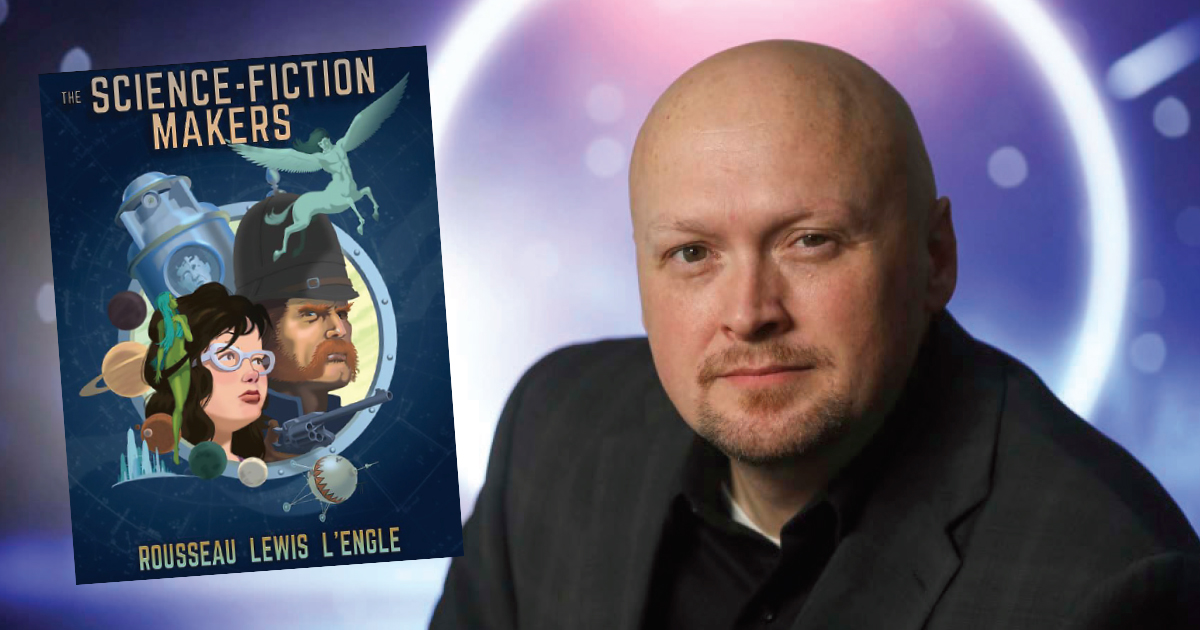"Science fiction is a form that plays on the imagination and uses current developments to speculate about what things might look like in the future or, in some cases, the alternative past,” states Dr. Michael Boyce, vice-president academic and dean of Booth University College in Winnipeg.
What makes this statement unique, however, is that it was made via a recent documentary titled The Science-Fiction Makers (the second film in the Faith in Imagination trilogy). Dr. Boyce, along with an impressive panel of experts, appears in the 90-minute film written and directed by Andrew Wall.
The feature documentary examines the Christian science-fiction sub-genre and three writers that played a role in its emergence—C.S. Lewis (The Chronicles of Narnia), Victor Rousseau Emanuel and Madeleine L’Engle (A Wrinkle in Time).
“Science fiction doesn’t naturally have a spiritual element,” continues Dr. Boyce in a follow-up interview about his appearance in the film. “The focus is usually more on the physical world and using science as a way of progressing humanity. But there was this small pocket of writers who used science fiction to try and explain something about their understanding of Christianity. That’s what the film is about.”
Novel Response
Dr. Boyce wasn’t actively pursuing the chance to appear in a feature documentary. The opportunity came somewhat “out of the blue.” He had met director Andrew Wall at a film festival where he was presenting the first film of the trilogy, The Fantasy Makers. A subsequent phone call and few discussions later, “I told him if I can help in any way with the making of the second film, I will. The next thing I know he’s encouraging me to be on camera,” says Dr. Boyce, who appears throughout the film.
Many of his more expansive insights focus on Victor Rousseau. Rousseau, who grew up Jewish but was later influenced by Baptist teachings, wrote in a variety of genres during the first half of the 20th century, including science fiction.
One of his best-known novels, The Messiah of the Cylinder, tells the story of a man who is frozen in suspended animation for 100 years. The man awakens to an entirely different society devoid of religion and family (a “dismal dystopia” is how Dr. Boyce describes it in the film), and then proceeds to try and bring Christianity to the world. “Rousseau wrote it, really, as a response to other science-fiction novels that left out religion and spirituality.”
Unique Experience
Generally, an obscure novel such as The Messiah of the Cylinder might be found in a university course grounded in critical readings of historical science fiction and fantasy. A documentary like The Science-Fiction Makers brings it to a wider audience. This is something Dr. Boyce appreciates.
“As academics, we don’t often get an opportunity to present ideas in as accessible a way as a documentary,” he says. “We try and we want to, but it isn’t always easy.” A film like The Science-Fiction Makers provides that opportunity. It also shines a spotlight on stories and storytelling, something that touches all areas of life.
“Stories matter. I am constantly telling my students that. The documentary gave me a chance to talk about that, in the context of science fiction and Christianity, outside of the classroom. It was a different experience, a unique experience.”
The Science-Fiction Makers can be viewed on Super Channel (a streaming channel through Amazon Prime).
Reprinted from Booth UC Connect, Summer 2021
This story is from:








Leave a Comment